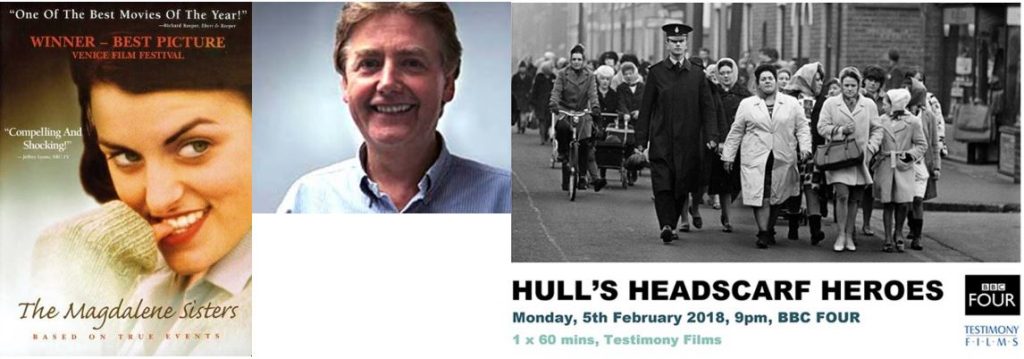
Centre – Steve Humphries
Right – ‘Hull’s Headscarf Heroes’ by Testimony Films, 2018.


In this post, Andy Clark reflects on discussions originating from the 2019 Oral History Society Conference held in Swansea regarding the current state of oral history. In particular, he reflects on the casualisation* and precarity faced by practitioners of the methodology. How can we develop an approach that is inclusive, democratising, whilst also promoting the skill-set of trained and experienced oral historians? Please feel free to join the discussion by posting in the comments section below.
How can Oral History Society (OHS) training meet the vastly different needs of academic and non-academic historians with diverse interests? In this Lug post, our Associate Researcher, Rosie Bush, shares her experiences of the OHS ‘Introduction to Oral History’ course. She outlines the areas the course covers and considers the steps that follow when starting out.
How can oral historians interact with other forms of interviewing, voice recordings and publication of oral sources? In this Lug post, Andy Clark discusses his experiences of interviewing and producing features for BBC Radio Scotland. He considers the differences between this style and his oral history work, and the ways in which oral history training can be advantageous when undertaking broadcasting work.